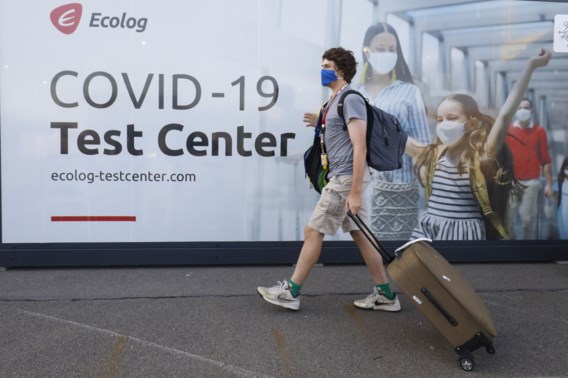A decision to allow people with no coronavirus symptoms to get tested again could see Belgium's daily infection rate swell by up to 10%, a health official said.
Belgium will revert back to universal coronavirus testing from 23 November, following a decision to stop testing people without symptoms and returnees from high-risk travel zones amid as labs buckled under a surge of new coronavirus cases.
In the daily press conference on Wednesday, Sciensano virologist Yves Van Laethem said that the resumption of asymptomatic testing risked pushing new infection figures back up by 10%, Le Vif reports.
Related News
- Coronavirus infections in Belgium continue to drop
- Belgium adapts quarantine rules as asymptomatic tests resume
- No clear explanation for slowing drop in Belgium’s Covid-19 figures, crisis centre says
Since the first wave of the pandemic, Belgium has tested more than 5.5 million people, with the average number of daily tests mostly fluctuating around 50,000 over the one-month suspension of asymptomatic tests.
On Wednesday, out of the 28,000 daily tests done on average over the past 7-day period, 19.5% returned a positive result.
The return to the country's testing strategy comes as daily indicators for new infections continue giving signs of receding, dropping below 5,000 on Wednesday — half the numbers recorded less than two weeks ago.
The number of new hospitalizations has also begun to climb down, with just over 400 patients admitted to hospital over the past 24 hours, and 316 discharged.
The scale-up of the testing strategy also brought changes to the country's quarantine rules, with the length dependent on the results of tests but which Van Laethem said would now last, theoretically, around ten days.
Anyone who has no symptoms but who has had a high-risk contact or returned from a high-risk travel zone must get tested seven days after the date of exposure, with testing labs aiming to send back results within a maximum of 48h.
Gabriela Galindo
The Brussels Times

